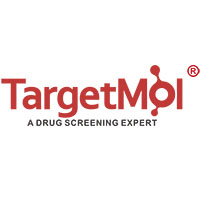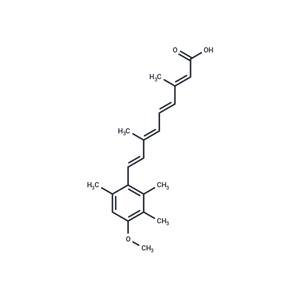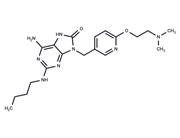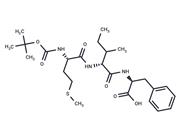| Name | Acitretin |
| Description | Acitretin (Ro 10-1670) is a second-generation systemic retinoid used in the treatment of psoriasis. |
| In vitro | Acitretin stimulates ADAM10 promoter activity with an EC(50) of 1.5 mM and leads to an increase of mature ADAM10 protein that results in a two- to three-fold increase of the ratio between alpha- and beta-secretase activity in neuroblastoma cells. [1] Acitretin (5-20 μM) impairs mitochondrial phosphorylation efficiency as demonstrated by the decrease in the state 3 respiration and ATP levels, and by the increase in the lag phase of ADP phosphorylation cycle, without affecting the membrane potential. Acitretin induces Ca(2+)-mediated mitochondrial permeability transition (MPT) and decreased the adenine nucleotide translocase (ANT) content. [2] Acitretin preferentially inhibits the growth of SCL-1 cells in a dose- and time-dependent manner, but not of non-malignant keratinocyte HaCaT cells. Acitretin increases the levels of CD95 (Fas), CD95-ligand and Fas-associated death domain. Acitretin is able to induce apoptosis in skin cancer cells possibly via death receptor CD95 apoptosis pathway without affecting the viability of normal keratinocyte. [3] |
| In vivo | Acitretin undergoes alpha-oxidation, chain shortening O-demethylation, and glucuronidation in the perfused rat liver. [4] Acitretin rapidly appears in liver and muscle of rats, where it undergoes redistribution into skin and adipose tissue. [5] |
| Storage | Powder: -20°C for 3 years | In solvent: -80°C for 1 year | Shipping with blue ice. |
| Solubility Information | H2O : < 1 mg/mL (insoluble or slightly soluble)
DMSO : 18.33 mg/mL (56.16 mM), Sonication is recommended.
Ethanol : < 1 mg/mL (insoluble or slightly soluble)
|
| Keywords | inhibit | Retinoic acid receptors | Autophagy | RAR/RXR | Apoptosis | Retinoid X receptors | Inhibitor | Acitretin |
| Inhibitors Related | Stavudine | Sodium 4-phenylbutyrate | L-Ascorbic acid | Hydroxychloroquine | Guanidine hydrochloride | Taurine | Tributyrin | Paeonol | Naringin | Salicylic acid | Gefitinib | Oleic acid |
| Related Compound Libraries | Bioactive Compound Library | Drug-induced Liver Injury (DILI) Compound Library | Anti-Cancer Clinical Compound Library | Drug Repurposing Compound Library | Anti-Cancer Approved Drug Library | FDA-Approved Drug Library | Anti-Aging Compound Library | Bioactive Compounds Library Max | Anti-Cancer Active Compound Library | Anti-Cancer Drug Library |

 United States
United States



